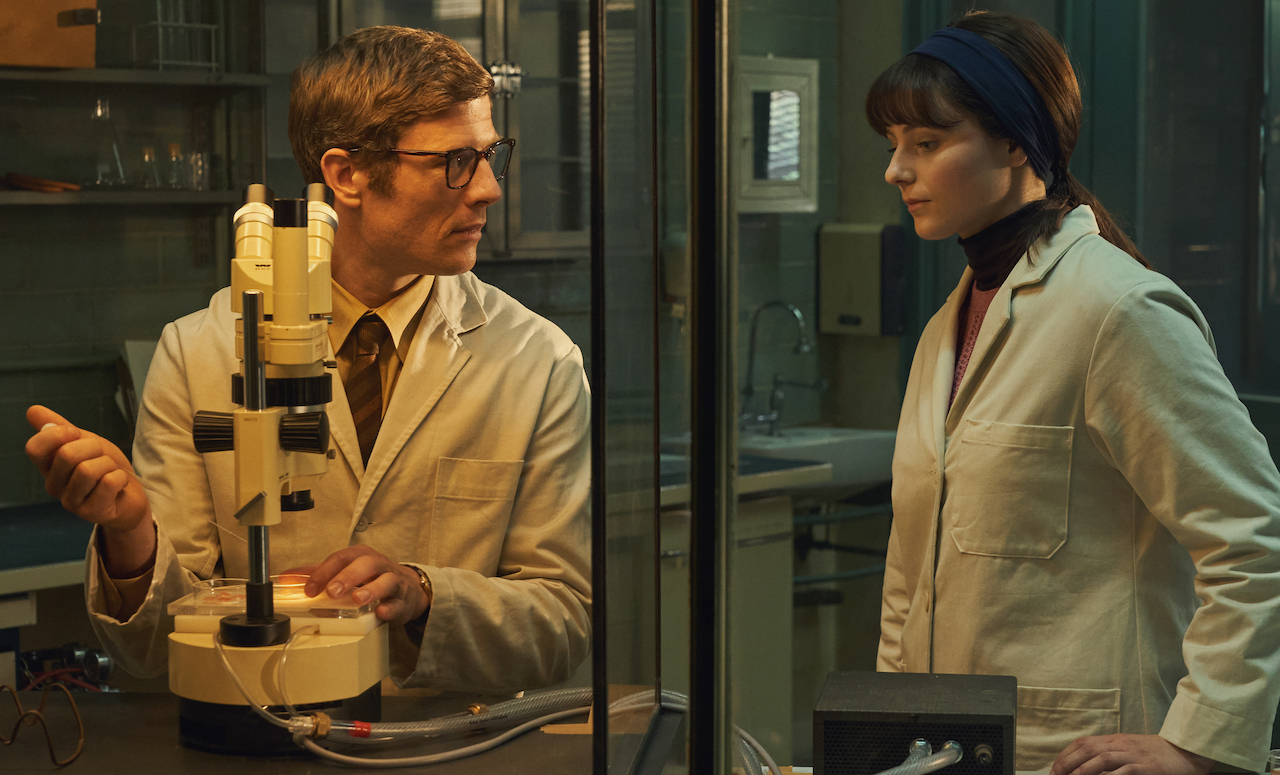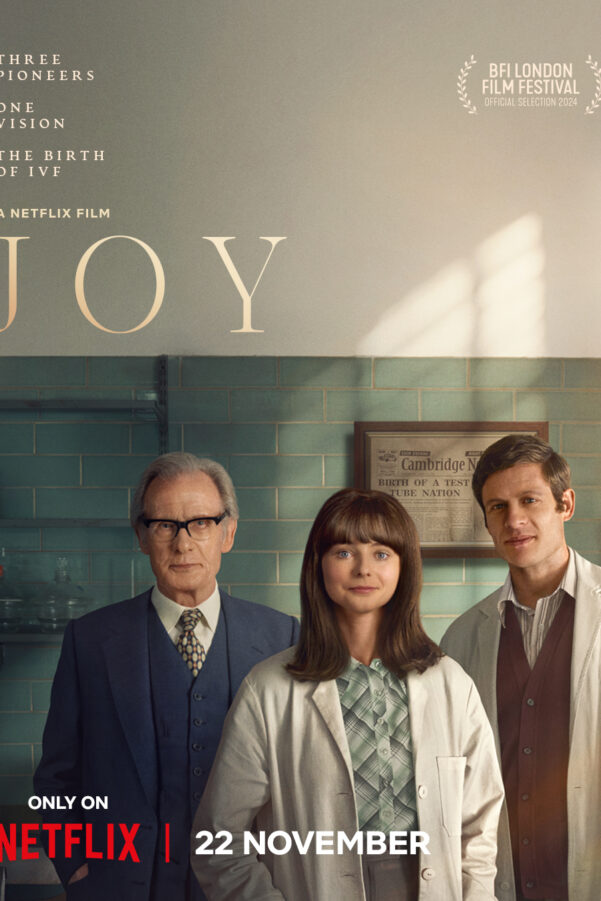Joy

In the face of widespread public and institutional hostility, an intrepid trio with “right” on their side and the determination to follow through will overcome the odds. Cue the [whimsical music playing] captions. It’s a ceaselessly reliable formula to apply to the “Based on a True Story” template: enough vitality provided to spruce up a Wikipedia page, but not so much as to prohibit it all going down as easy as a cup of warmest cocoa. Courtesy of screenwriters Jack Thorne, Emma Gordon and Rachel Mason and veteran TV director Ben Taylor (Catastrophe, Sex Education), the Netflix-bound Joy – so named for the very first baby to be born by way of in vitro fertilisation – is one such slickly made, undemandingly watchable entry in this canon. Still, as ever, the earnest intent to grant protagonist status to those undeservedly overlooked by both their professional community and the public at large proves admirable.
In this case, the tale of pioneering advances in IVF treatments over 1968-1978 is largely told through Jean Purdy (Thomasin Mckenzie), a nurse and lab technician of leading importance to the cause of crusading doctor Robert Edwards (James Norton) and weary long-timer Patrick Steptoe (Bill Nighy). Re-locating to a rundown facility in the middle of nowhere, the three devote themselves to under-funded research into the potential revolutionisation of infertility treatment. Through Purdy’s experience, we are effectively placed in the direct crosshairs of the resistance the treatment faces, promptly ostracised by her own Church community and pious mother (Joanna Scanlan, making do with an underdeveloped role). Furthermore, she may harbour her own personal motives for wanting to see the treatment through, though they are too privately guarded to share even with her colleagues. There is a more searching, intimate character portrait one can sense in Purdy’s struggle to reconcile her faith with her convictions as a medical practitioner, but Joy has only so much room for hurt feelings or adversity. Taylor’s film moves at such a clip that the ten years it spans scarcely register, its sense of uplift so firmly decided upon that only the softest of blows may greet the central three on their journey there.
For their part, each of the central players is appealing in their own right. Thorne and co conceive of Edwards as a manic pixie doctor of unflappable good cheer, and Norton’s portrayal is considered enough to render gee-whiz enthusiasm without toppling into tweeness. Meanwhile, Nighy comfortably settles into the gentle, sage, almost-but-not-quite-cantankerous elder statesman role he’s come to master over time. If he scarcely seems to be breaking a sweat, perhaps that is simply a testament to how firmly his presence can set any movie on steady rails. Still, Mckenzie has the biggest, most complex task, and she meets it in refreshingly low-key fashion, grounding the film in real emotion whenever it appears at risk of broad narrative box-ticking. It is, in part, thanks to her that those unfamiliar with the particulars of this story may feel a sudden pang of sorrow when the final run of onscreen text informs us of just what happened next.
Edwards would be awarded a Nobel Prize decades later for his contributions, but neither Purdy nor Steptoe would be alive to accept one themselves. The tender attention granted their stories here does much to elevate Joy’s intentions beyond the cosy teatime context to which it seems destined. The film may go down easy enough to seem almost weightless, but the filmmakers ensure the real stories reflected within still pack a resonant punch.
Thomas Messner
Joy is released in UK cinemas on 15th November and on Netflix on 22nd November 2024.
Watch the trailer for Joy here:

























Facebook
Twitter
Instagram
YouTube
RSS